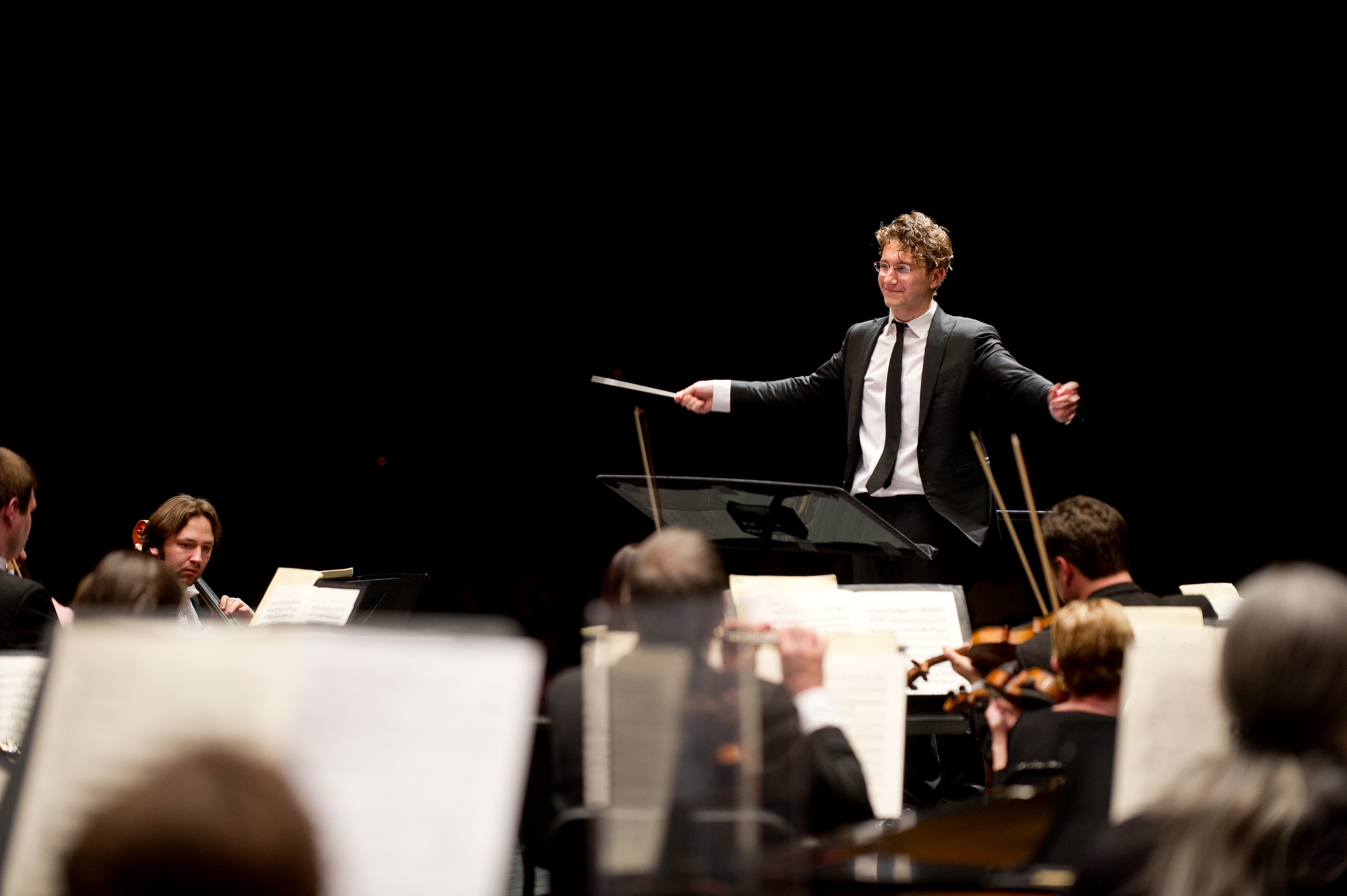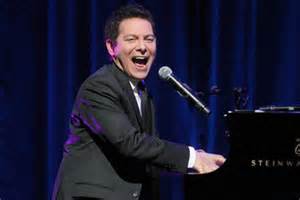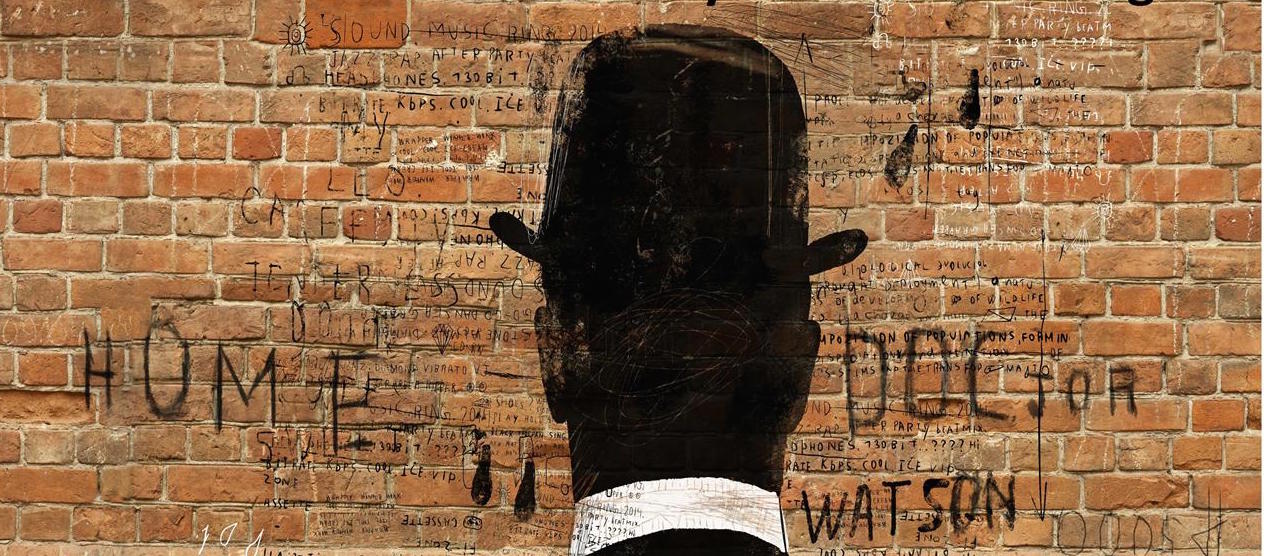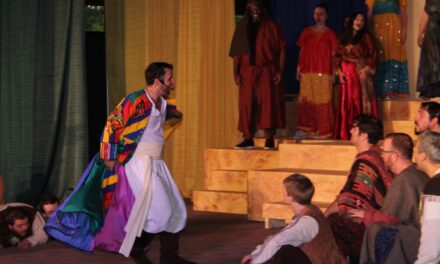Conductor Teddy Abrams. Photo courtesy Louisville Orchestra
Kaddish to Klezmer
The Louisville Orchestra
Teddy Abrams, conductor
Review by A.S. Waterman
Entire contents copyright © 2015 A.S. Waterman. All rights reserved.
“Just like the holidays,” my companion commented on the over-full parking lot, and again on the cramped seating in the auditorium at The Temple, a populous Reform synagogue in Louisville’s east end. It was indeed crowded! However, for this eagerly anticipated program of Jewish music as part of the Louisville Orchestra’s Music Without Borders, that’s hardly a surprise.
“Biblical to Broadway,” or perhaps “Antiquity to America,” might have been a more apt title, as the program aimed to embrace the wide spectrum of Jewish music across the millennia. There was indeed a kaddish, specifically Maurice Ravel’s Kaddisch from Deux mélodies hébraïques, beautifully sung by baritone Chad Sloan. While no one truly knows the origin of this ancient text, best known as a mourner’s prayer, the kaddish actually holds several functions within a traditional Jewish service, including praise for the divine. Ravel’s flowing and haunting orchestration gives a multi-faceted expression to its mysticism as well as its range of meanings. One of the highlights of the program, this piece held the rapt audience spellbound.
As for klezmer — a unique musical form that originated in the shtetls of Eastern Europe, and one that uses instruments to mimic the emotion of a human voice — it received only a passing nod, as a “Klezmer interlude” following Leonard Bernstein’s Overture to West Side Story. Although pleasing musically, this tangential rendering didn’t meet expectations, and true klezmer devotees may have been left disappointed.
The orchestral program, overall, more than delighted as well as educated. Joseph Rumshinsky’s March from Chantsche in Amerike (“Songs in America”) provided an energetic opening, after a brief swatch from Fiddler on the Roof that evoked smiles. The liturgical side of Jewish music included Salamone Rossi’s Baruch haba b’sheim Adonai (Blessed is he who comes in the name of the Lord), its lovely late Renaissance strains beautifully performed. Gustav Mahler’s gentle Adagietto (fourth movement) from Symphony No. 5 paid tribute to Jewish classical composers, with narrator Teddy Abrams explaining how many such composers had to conceal their Jewishness in order to gain acceptance.
Most of the program, however, was devoted to Jewish composers’ immeasurable contribution to the world of entertainment. From Aaron Copland’s “Music for the Theatre” to Offenbach’s Overture to the operetta Orpheus in the Underworld (best known to modern audiences as the music of the cancan) to John Kander’s Overture to Chicago and Gershwin’s Overture to Girl Crazy, the influence of Jewish achievement was duly honored.
To bring the program into the present day, Music Director and conductor Teddy Abrams offered one of his own compositions, entitled Questions, sung by popular local vocalist Carly Johnson. In his bio, the composer describes Questions as “a simple folk tune paired with neo-Romantic orchestration.” It was nice to experience this side of Mr. Abrams, who in the Music Without Borders series alone has done so very much for Louisville music. As for Ms. Johnson’s rendering, a separate microphone EQ’d for her, rather than for the male vocalists with whom she shared it, would have done more to bring out the delicately nuanced and highly textured voice for which she is well known. Nonetheless, she gave a fine performance on this and on “All That Jazz” as her subsequent solo.
A medley of three lively swing tunes — George Gershwin’s “Liza” followed by Irving Berlin’s “Blue Skies” and “Alexander’s Ragtime Band” — brought a fitting end to the program, making it difficult for patrons to sit still in their seat despite the crowded conditions. Vocals were rendered by Chad Sloan along with University of Louisville senior Ricky Case.
As always in the Music Without Borders series, the detailed printed program, this one a full 16 pages, helped to establish the background and context of the selections, as did Mr. Abrams’ entertaining narration.
Kaddish to Klezmer was also a success, despite the misnomer. For the klezmer portion, we should perhaps just say kaddish — or perhaps we could hope to see it featured prominently in a second Jewish music program, which would undoubtedly be welcomed.
The Temple venue presented many challenges. With both the orchestra and the audience at floor level, most of the musicians could be seen only when they stood at the end of a piece. The room acoustics lent no resonance to the orchestral sound, which at times came out thin. The vocalists were often overpowered by the orchestration, and indeed a flat or sour instrumental note rang out here and there. Nonetheless, the choice of a synagogue’s “party room” seemed appropriate, letting audience members feel comfortable humming along to a familiar melody, waving to acquaintances across the room, or acting out a line or two, even if it jostled the party next to them.
In any case, music, like any earthly creation, should not be perfect. After all, this event was a simcha — a celebration — and one well deserved.
Kaddish to Klezmer
October 16 – 18, 2015
The Louisville Orchestra
Music Without Borders
(502) 587-8681
Louisvilleorchestra.org
A.S. Waterman is the lead writer and creative director for WhoDunnit Murder Mystery Theater, which she co-founded in New England in 1999, moving it to Louisville in 2004. Following the move, she also founded TheatreLouisville.org, for which she serves as the current publisher. In addition to the above, she has written, produced and directed several Jewish theater plays, and she performs regularly around town as one-half of the musical duo Two of Diamonds.





